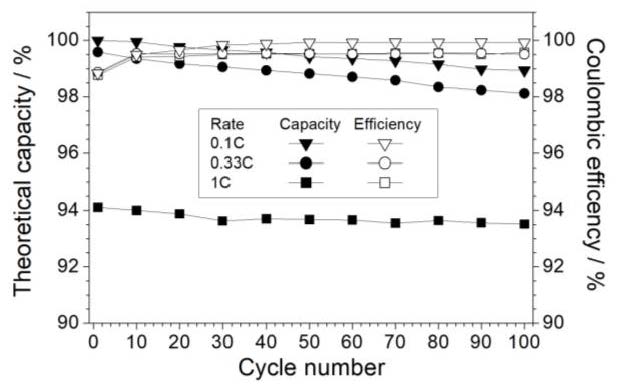Li+-conducting polyethylene oxide-based membranes, incorporating the N-butyl-N-methylpyrrolidinium bis(trifluoromethanesulfonyl)imide, are as electrolyte separators for all-solid-state lithium polymer batteries operating at medium-high temperatures. The incorporation of the ionic liquid remarkably improves the thermal, ion-transport and interfacial properties of the polymer electrolyte, which, in combination with the wide electrochemical stability even at medium-high temperatures, allow high current rates without any appreciable lithium anode degradation. Battery tests carried out at 80 °C have shown excellent cycling performance and capacity retention even at high rates, never tackled by ionic liquid-free polymer electrolytes. No dendrite growth onto the lithium metal anode was observed.

